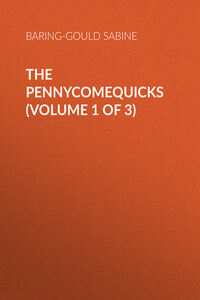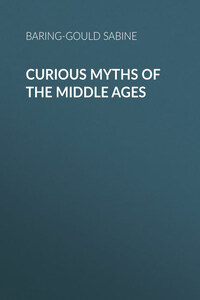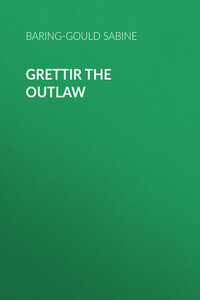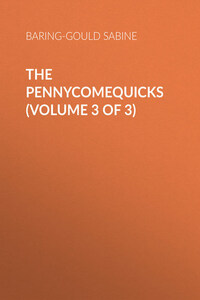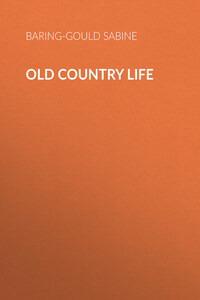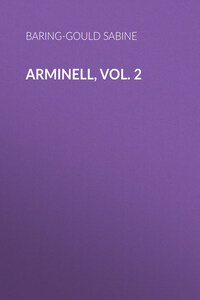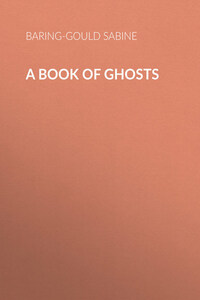CHAPTER I.
SHAKING THE TREE
There is an aboriginal race in Borneo, of which it is said that they dispose of their aged parents and relatives in an interesting, novel, and altogether aboriginal fashion.
They courteously, but withal peremptorily, require them periodically to climb trees, and when they are well up and grappling the branches, they shake the trees. If the venerable representatives of the earlier generation hold on, they are pronounced to be still green; but if they drop, they are adjudged ripe, are fallen upon and eaten, the palms of the hands and the soles of the feet being reserved as the prerogative of the heir-at-law, as the richest morsels.
We do nothing of this sort in Christendom, least of all in civilized England. God, we thank Thee that we are not as other men are, even as these Borneans, for the conversion of whom we put prayer up at the family altar, that is, the breakfast-table, or offer our mite – a veritable mite, a microscopic fraction of our income. We look in England on our aged relatives with reverence, not with greed, and if we butter them, it is not because we desire to eat them, but because they are susceptible to butter. We never calculate the number of pounds they weigh, we never look hungrily at their palms, and never put the ladder against the tree, and with hat off and professions of respect and endearment invite them to climb. The Esquimaux act very differently from the Borneans; they take their ancient relations, and put them out of their huts in the cold, and leave them to freeze or starve. What a stride humanity has made with us! We deal with our poor, meagre relatives in this way? We! – as little do we turn them out in the cold as we do fall upon and eat up our plump ones, like the Borneans.
'One of the pleasures of having a rout, is the pleasure of having it over,' said Tom Hood, in his poem of Miss Killmansegg and her Golden Leg, and he said truly – most truly, when that rout was one of obligation or of interest, or of obligation and interest combined, when it was not a spontaneous burst of hospitality, but a laboured affair, and like a laboured literary effort – heavy.
Mrs. Sidebottom, or as she was pleased to accentuate her name, Siddy-bot-TOME, sat before the fire with her silk evening skirt turned up over her knees to prevent it from becoming scorched, and with her neat little feet on the fender.
What tricks we do play with our names to deliver them from the suspicion of vulgarity. How we double the capital F's, and convert the i's into y's, so that common little Finches can strut as Ffinches and insignificant Smiths can add a cubit to their stature as Smythes! How for distinction we canonize our final syllables, and convert Singeons into St. John's, and Slodgers into St. Ledgers; and elevate Mungy into Mont Joye, and Gallicize our Mullens into Molleynes, take the blackness out of Death by spelling it De'Ath and even turn a Devil into De Ville!
The candles had been blown out on the chimney-piece, in the sconces on the walls, and on the piano. A savour of extinguished candles pervaded the room.
Mrs. Siddy-bot-TOME – her name is given as pronounced once again, that it may stamp itself on the memory of the reader – Mrs. Siddy-bot-TOME (the third time is final) – sat by the fire with puckered lips and brows. She was thinking. She was a lady of fifty, well – very well – preserved, without a gray hair or a wrinkle, with fair skin and light eyes, and hair the colour of hemp. Her eyelashes were lighter still, so light as to be almost white – the white not in fashion at the time, but about to come into fashion, of a creamy tinge.
She was not a clever woman by any means, not a woman of broad sympathies, but a woman who generally had her own way through the force and energy of her character, and as that force was always directed in one direction, and her energy always exerted for one purpose, she accomplished more than did many far cleverer women. She rarely failed to carry her point, whatever that point was.
Whatever that point was, it was invariably one that revolved about herself, as the moon about the earth in the universe, as Papageno about Papagena, in the 'Magic Flute,' and as the cork attached to the cat's tail in the nursery.
If Mrs. Sidebottom had been a really clever woman, she would have concealed her ends and aims, as those who are smuggling lace or silk, coil them about them, and hide them in their umbrellas, under their cloaks, and in their bosoms. But she lacked this cleverness, or failed to admit that selfish aims were contraband. We are all selfish, from the smallest herb, that strives to outrun and smother those herbs that grow about it; through the robin Pecksy, that snaps the worm from its sister Flapsy; and the dog that holds the manger against the ox; to ourselves, the crown of creation and the climax of self-seeking, but we do not show it. The snail has telescopic eyes, wherewith to peer for something he may appropriate to himself; but the snail, when he thinks himself observed, withdraws his horns and conceals them behind a dimple.
